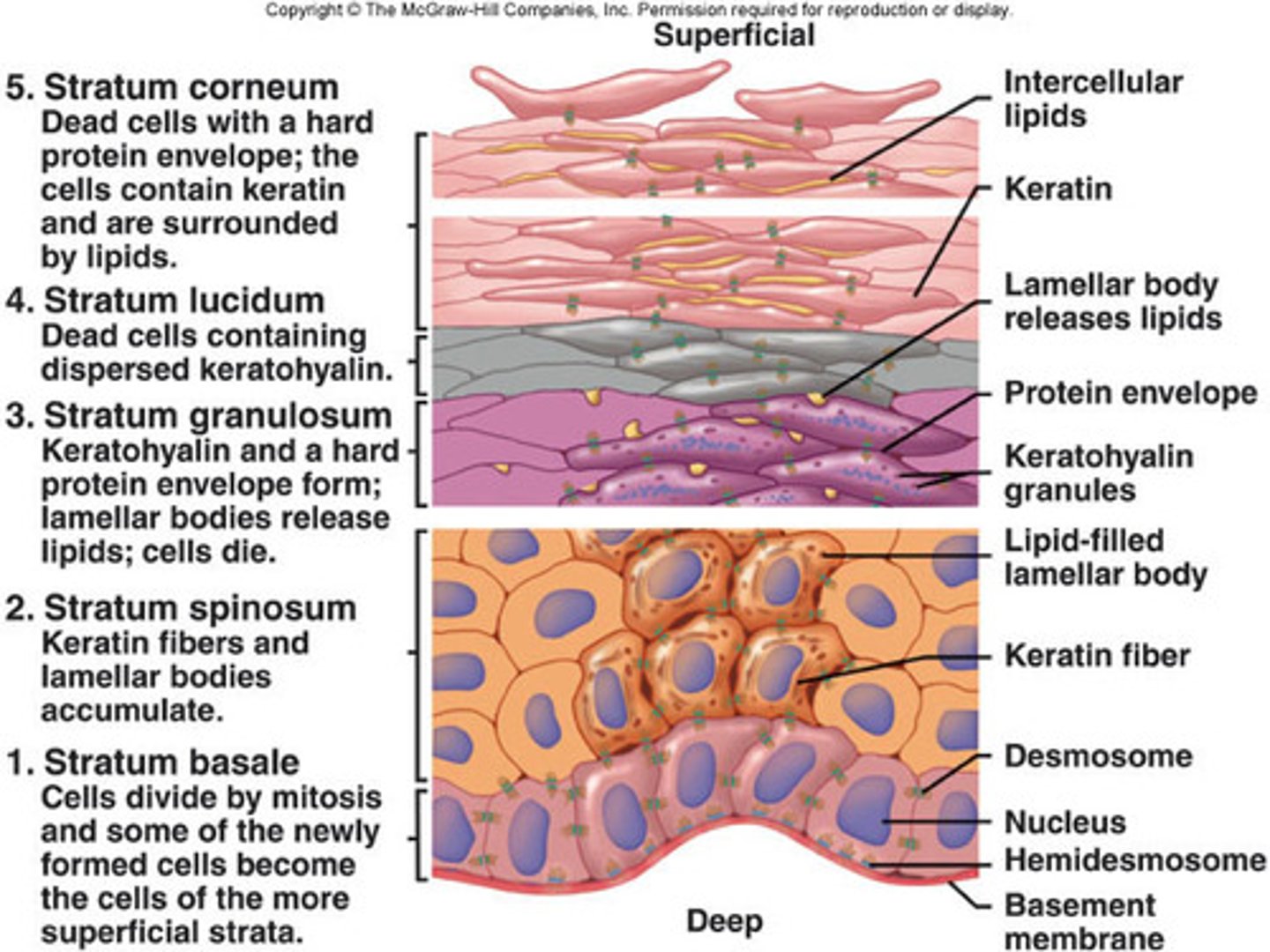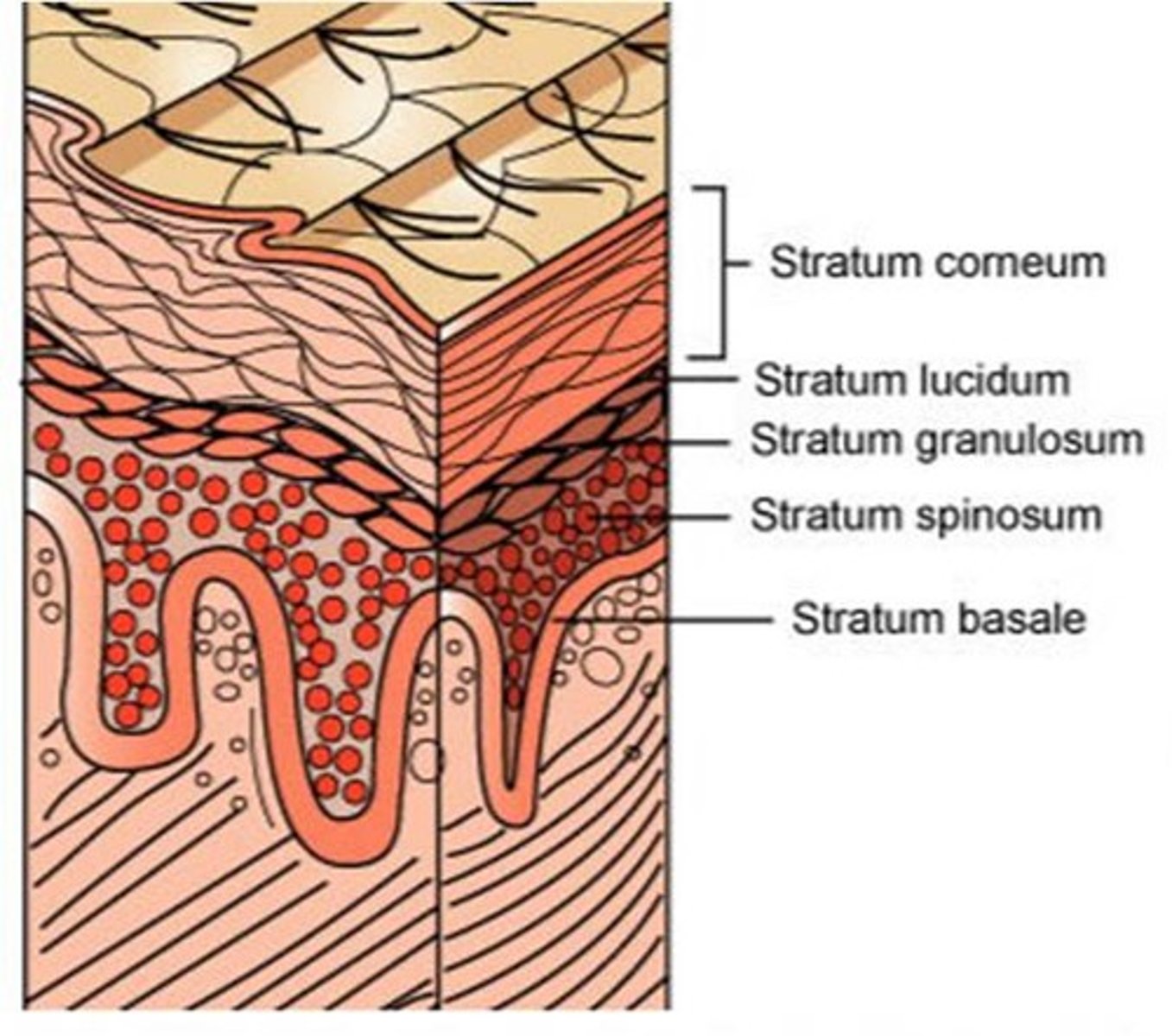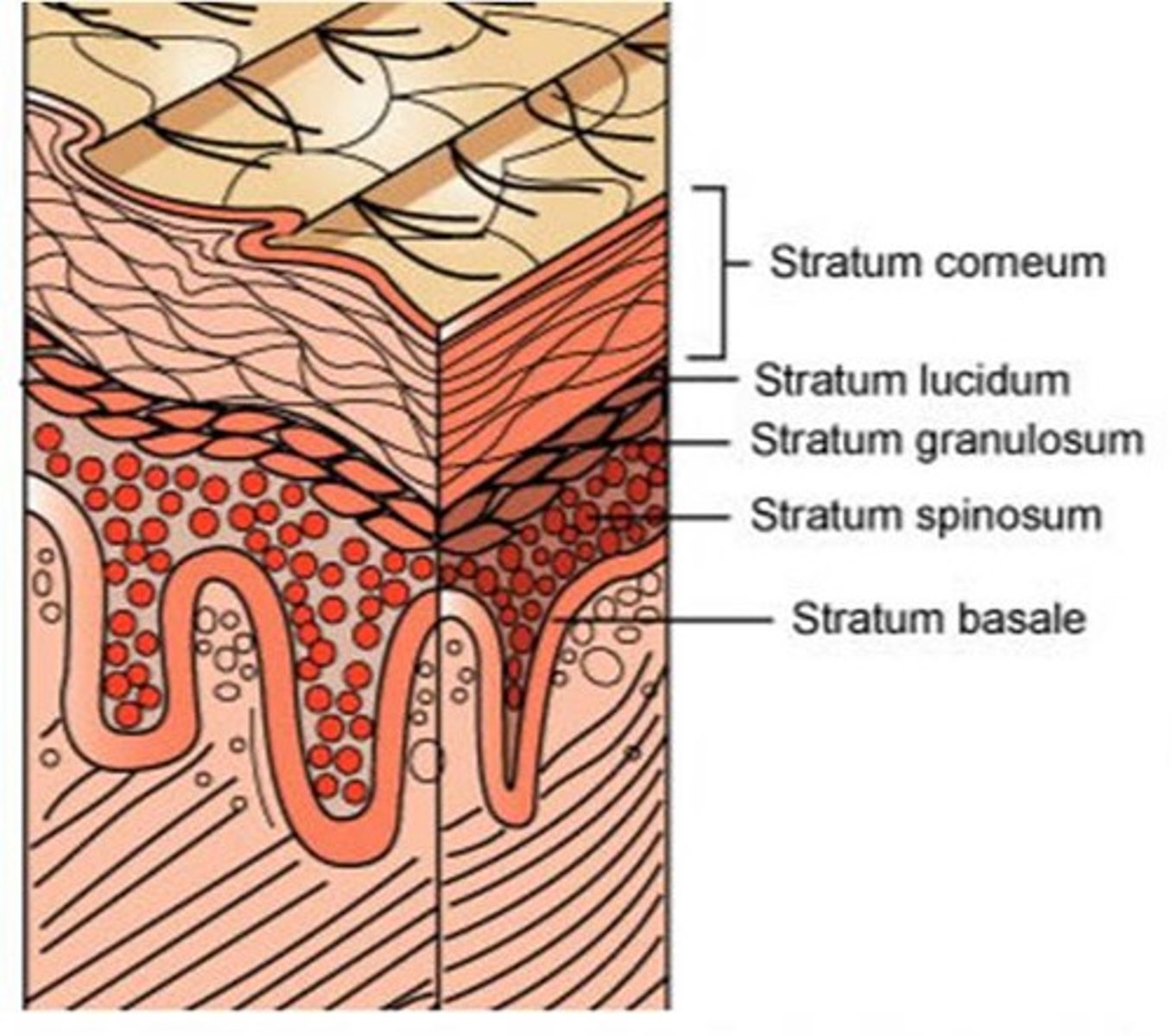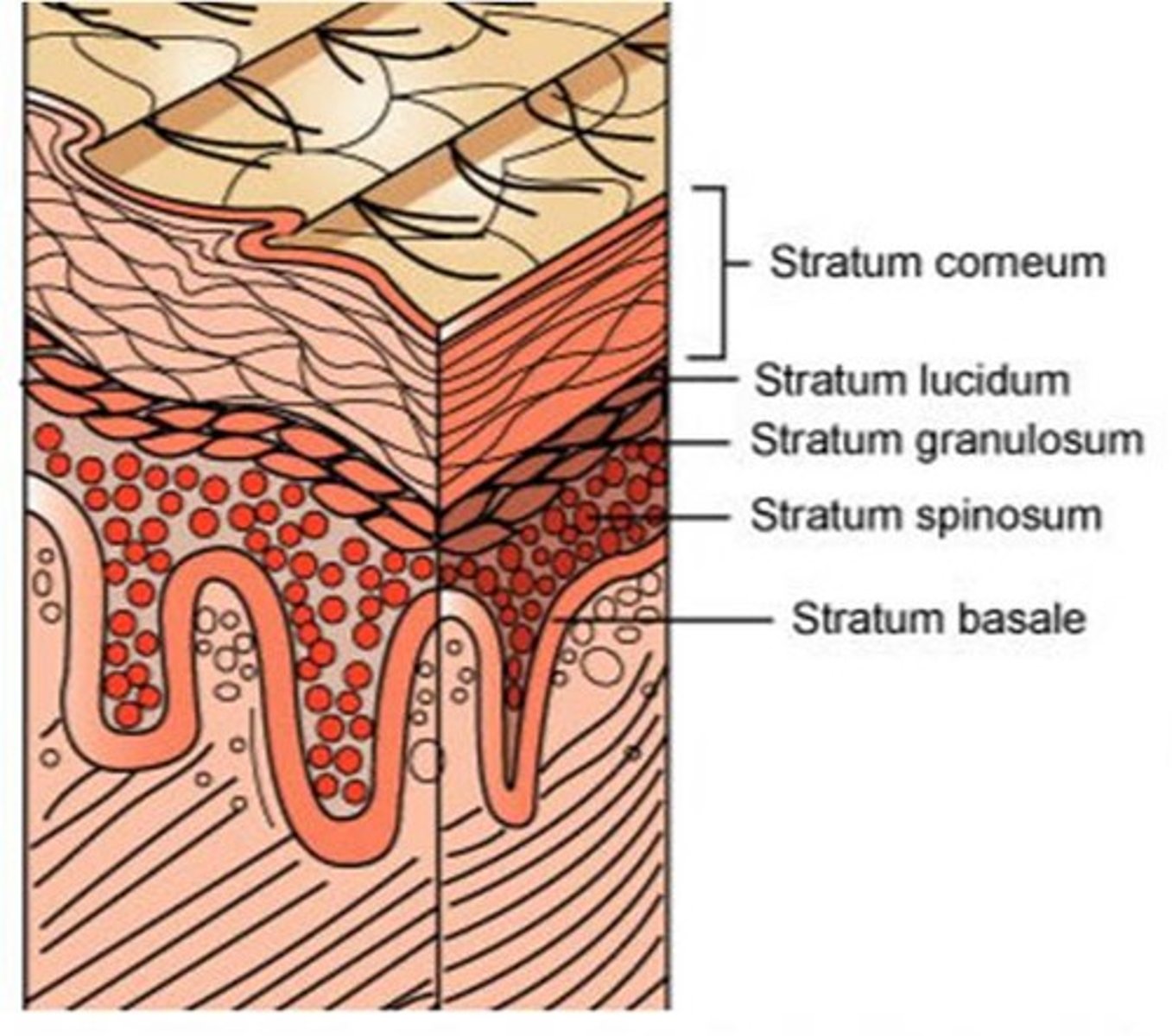Layers of the Epidermis
1/6
There's no tags or description
Looks like no tags are added yet.
Name | Mastery | Learn | Test | Matching | Spaced | Call with Kai |
|---|
No analytics yet
Send a link to your students to track their progress
7 Terms
Stratum basale (basal layer)
- single row of cells immediately above the dermis
- cells constantly undergoing mitosis to form new cells
- some 10-25% of the cells in this layer are melanocytes

Stratum Spinosum (Spiny layer)
-several layers of cells that contain thick, weblike bundles of intermediate filaments made of a pre- keratin protein
- The cells in this layer appear spiky because when the tissue is prepared, the cells shrink, but their desmosomes hold tight to adjacent cells
- Cells in this layer and the basal layer are the only ones to receive adequate nourishment from diffusion of nutrients from the dermis

Stratum Granulosum (granular layer)
-A thin layer named for the abundant granules its cells contain
-lamellar granules: contain a waterproofing glycolipid that is secreted into the extracellular space
-Keratohyaline granules: help to form keratin in the more superficial layer, at the upper border of this layer, the cells are beginning to die

Stratum lucidum (clear layer)
- present only in thick skin
- A very thin transparent band of flattened, dead keratinocytes with indistinct boundaries

Stratum corneum (horny layer)
- The outermost layer consisting of 20-30 layers of dead, scalelike keratinocytes
- They are constantly being exfoliated and replaced by the division of the deeper cells
Dermis (Papillary Layer)
- The more superficial dermal region composed of areolar connective tissue
- It is very uneven and has fingerlike projections from its superior surface, the dermal papillae, which attach it to the epidermis above
- These projections lie on top of the larger dermal ridges
- Produce the fingerprints- unique patterns of epidermal ridges that remain unchanged throughout life
- Abundant capillary networks in the papillary layer furnish nutrients for the epidermal layers and allow heat to radiate to the skin surface
- The pain and touch receptors are also found here
Reticular layer
- The deepest skin layer
- composed of dense irregular connective tissue and contains many arteries and veins, sweat and sebaceous glads and pressure receptors